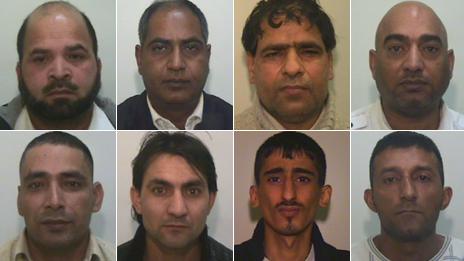Rochdale grooming: Abused women receive police damages
- Published
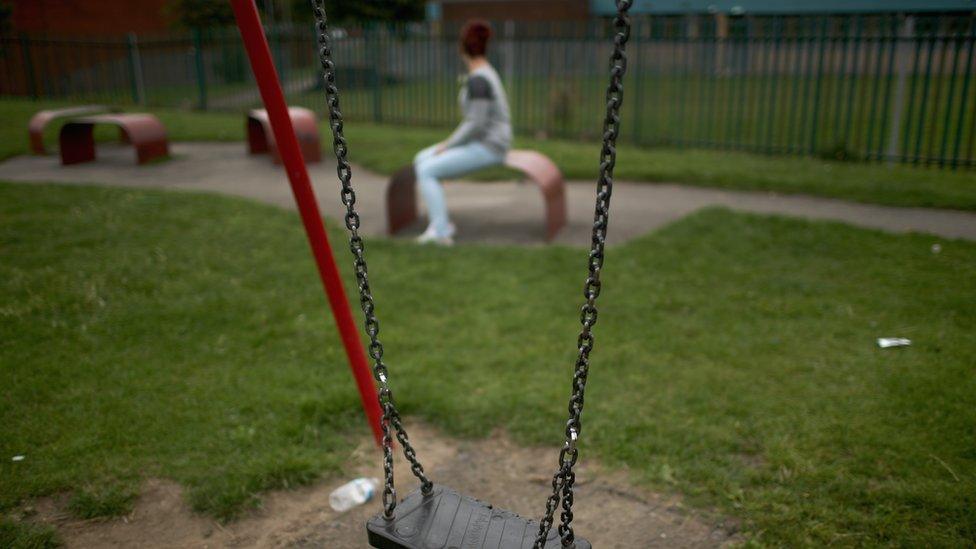
The women, who were abused as children, brought a legal claim against the police force
Three women who were groomed, raped and abused by gangs of men in Rochdale have received "substantial" damages and an apology from Greater Manchester Police.
The women, who cannot be named for legal reasons, met Chief Constable Stephen Watson to be given the apology for police failings.
Mr Watson said the force should have done more to protect them.
One woman said she welcomed "some accountability" but did not believe GMP had "really changed their ways".
The women, who have been backed by lawyers from the Centre for Women's Justice charity, had brought a legal claim against the force.
According to legal documents, there was growing evidence from the early 2000s that gangs of predominantly Asian men were grooming, trafficking and sexually abusing mostly white working-class girls in the town.
Lawyers for the victims - one who was aged 14 and two who were just 12 at the time of the abuse - successfully argued their human rights were breached by the force failing to protect them.
Instead of being viewed as child victims of sexual abuse, they were branded by police as "bad" or "unreliable" witnesses and were sometimes arrested themselves, the women said.
They added that although the abuse was happening "in plain sight" and despite police and social services having the names of the men involved and their victims, a police operation to tackle the gangs was closed down abruptly in 2004.
'Horrific treatment'
Eight years later, following a second police investigation, nine men were convicted of sexual exploitation.
Their trial heard how young girls were plied with alcohol and drugs and gang-raped in rooms above takeaway shops, and were ferried to different flats in taxis where further abuse took place, sometimes with cash changing hands.
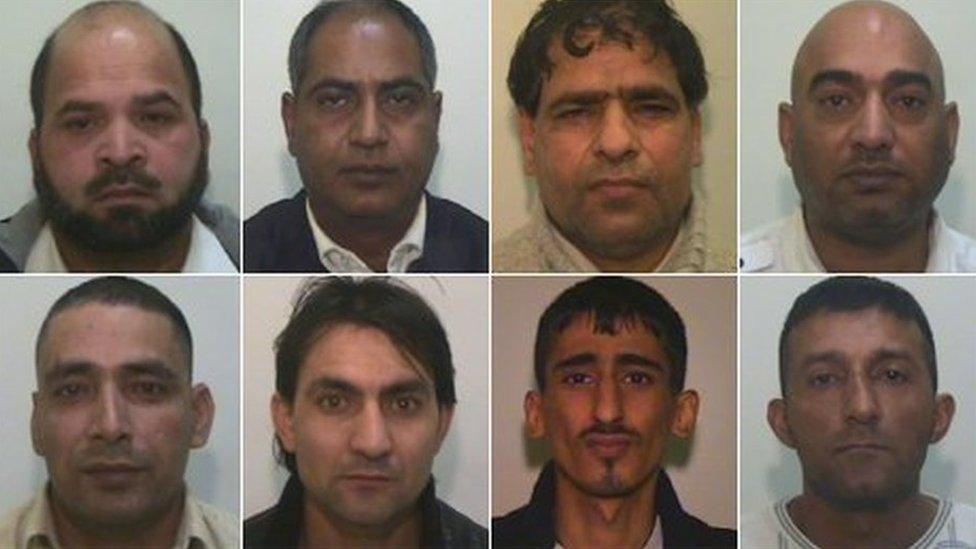
The men plied their victims with drink and drugs and "passed them around" for sex
Mr Watson told the women it was "a matter of profound personal regret that your childhood was so cruelly impacted by the dreadful experiences which you endured".
He continued: "GMP could and should have done much more to protect you and we let you down."
The force settled the claim before the matter got to court.
Former Det Con Maggie Oliver, who resigned in 2012 to turn whistleblower over the force's failings, said she was pleased with the outcome.
"I feel relieved that finally, after an all-consuming 10-year battle, GMP have at last acknowledged their horrific treatment of these three victims was wrong, even inhumane," she said.
Two of the women's cases formed the basis of the BBC drama Three Girls.
A decision has also yet to be made on whether two of the men, Adil Khan and Qari Abdul Rauf, will be deported back to Pakistan after they appealed against an original ruling.
A separate civil claim launched by the women against the Crown Prosecution Service is ongoing. A CPS spokesman said it could not comment in the meantime.

Beaten, abused, raped - but never believed by police
The legal documents involved in the case revealed one of the women, who was 12 at the time, was passed around "like a ball" between "thousands" of men for rape and sexual abuse.
She was later forced into prostitution and at 13, became pregnant by one of the men, Adil Khan, and had an abortion.
Police seized the foetus as evidence, but she was not notified, nor was her mother or any responsible adult.
The second woman was 14 when the abuse began. She later gave police the names or nicknames of 45 males who abused her or other children.
The third woman, who was also 12 at the time, was punched in the face by one of her abusers but was herself arrested for harassment.
On one occasion, she was picked up by police on the moors, miles outside Manchester, and told officers she told a man she did not want to sleep with him and he had taken her coat, thrown orange juice over her, and left her to walk home with no socks or shoes on.
Police drove her home and told her they could not do anything because they did not have the man's name.
She was later burnt repeatedly with a heated spoon when she refused to comply with the demands of a group of men, but was accused by police of inflicting the wounds on herself and arrested for disorderly behaviour.

Why not follow BBC North West on Facebook, external, Twitter, external and Instagram, external? You can also send story ideas to northwest.newsonline@bbc.co.uk
Related topics
- Published13 September 2021
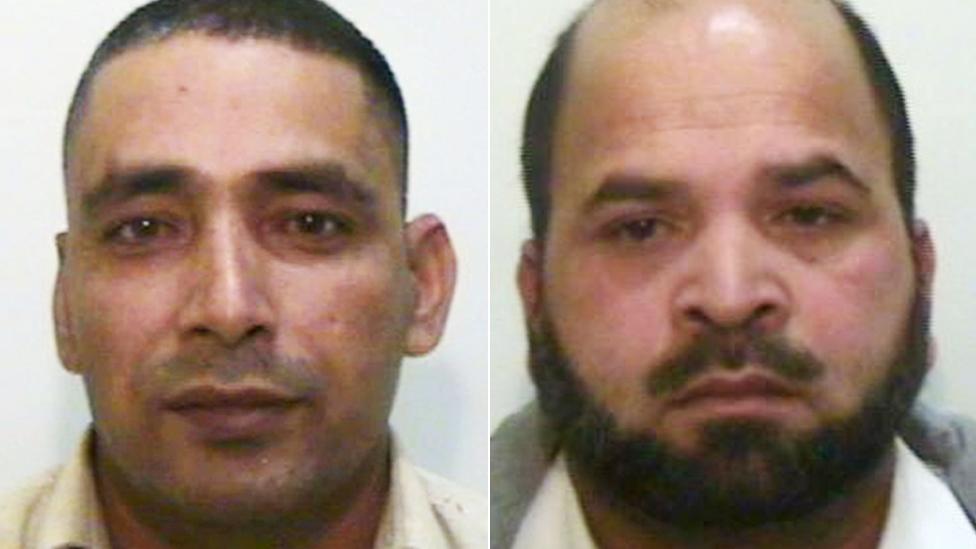
- Published6 April 2021
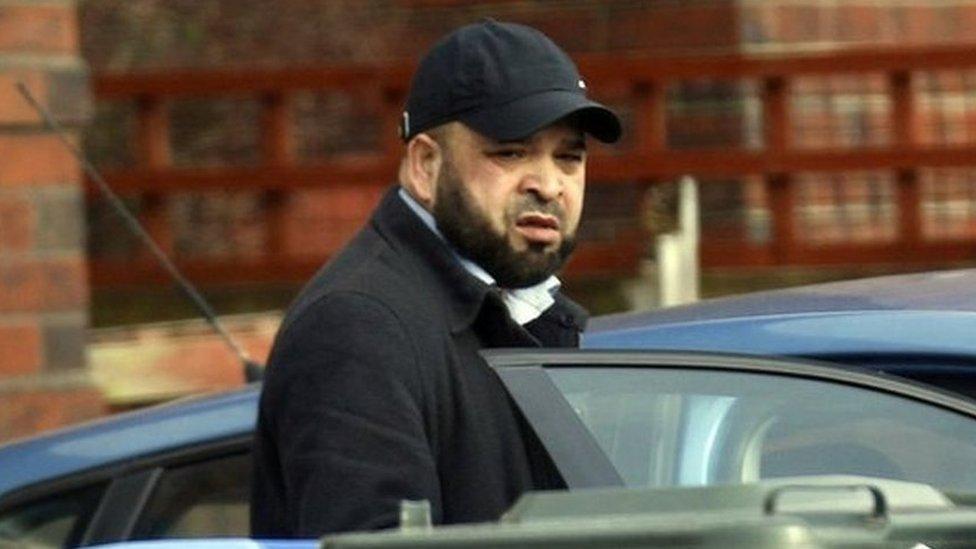
- Published11 May 2020
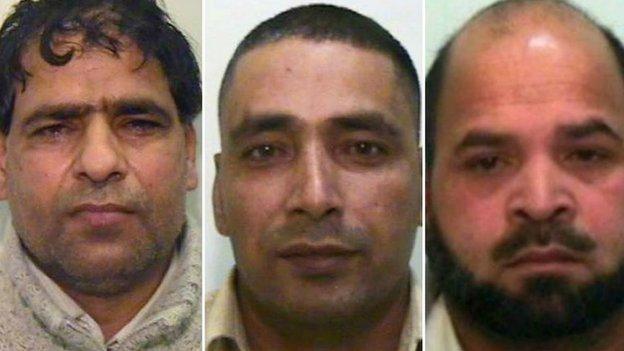
- Published8 August 2018

- Published3 July 2017
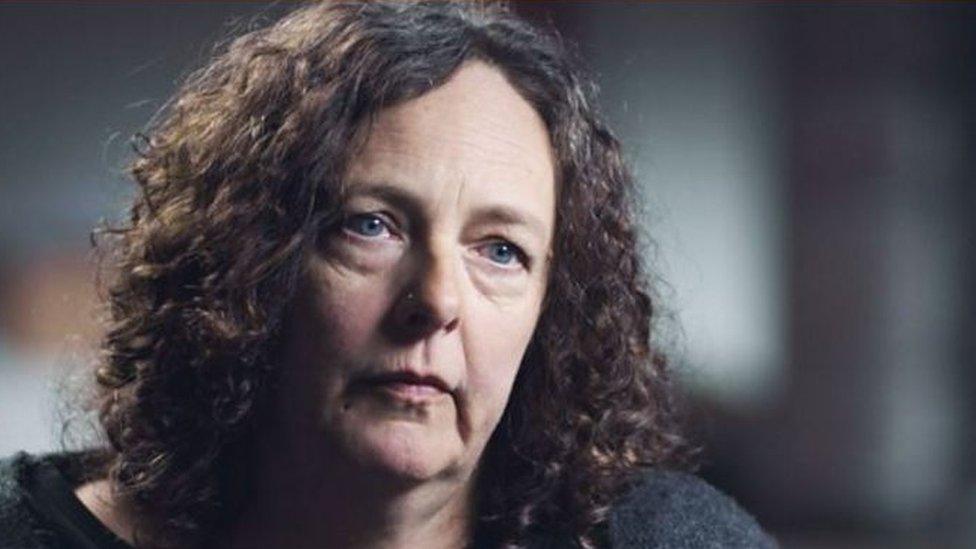
- Published9 February 2017
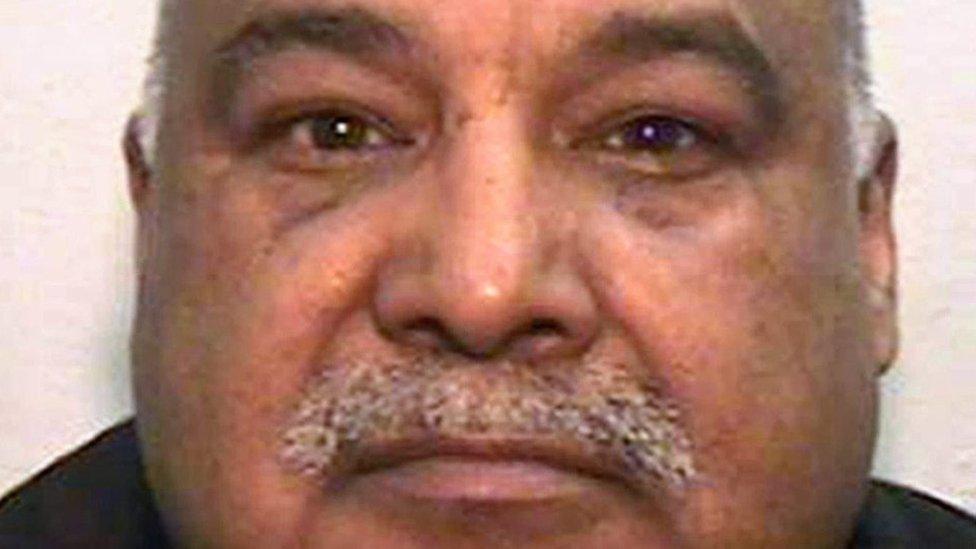
- Published8 May 2012

- Published9 May 2012
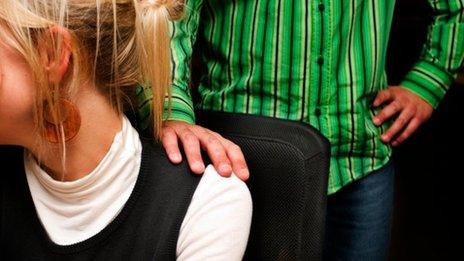
- Published9 May 2012
